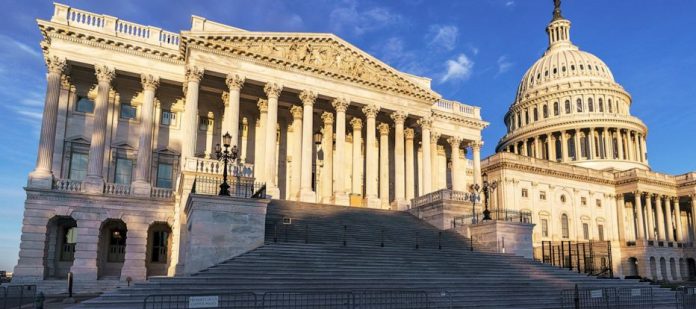House Speaker Nancy Pelosi recently insisted on a bipartisan vote to increase or possibly suspend the nation’s $28 trillion debt ceiling before the federal government runs out of cash to pay for the bills in October. House Majority Leader Steny Hoyer announced that Democrats will vote on the debt limit as well as a spending bill to keep the government operating past September. The current national debt is $28.8 trillion.
House Budget Committee chairman Rep. John Yarmuth has hinted that if Republicans don’t vote on it then they’re going to have to do it by themselves. He said they can’t do it through reconciliation because then they would have to specify a number. Pelosi said she expects bipartisan support for increasing the debt ceiling in order to “protect the full faith and credit of the United States,” adding that they need support from at least 10 Republicans to clear the Senate filibuster .
Some Democrats have entertained the idea of raising the limit without GOP support but many, such as House Majority Whip Jim Clyburn, said he was not fine with that. Senate Minority Leader Mitch McConnell said Senate Republicans would not vote to raise the debt limit and that they would need to ensure that the government is not at fault if they are going to do this on a partisan basis.
“Let’s be clear: With a Democratic President, a Democratic House, and a Democratic Senate, Democrats have every tool they need to raise the debt limit. It is their sole responsibility. Republicans will not facilitate another reckless, partisan taxing and spending spree,” McConnell tweeted earlier in the week.
If the Democrats do not get the GOP support they need to raise the debt ceiling, the administration can also exploit a loophole in the law and mint a $1 trillion platinum coin to deposit at the Federal Reserve. This would also avoid a potential government shutdown.
The Treasury Department can use cash on hand and shuffle money around, but that only works for so long. Treasury Secretary Janet Yellen adds that without any congressional action, the U.S could default on its debt and potentially trigger an “economic catastrophe.” She said it causes serious harm to businesses and consumer confidence, raises short-term borrowing costs for taxpayers, and negatively impacts the credit rating of the United States. She said it would cause “irreparable damage” to the U.S economy and global financial markets.
Platinum coins were also introduced as a solution to the COVID-19 response in the Automatic BOOST to Communities Act, which was floated by Rep. Rashida Tlaib. But treasury officials have ruled out the use of the coins as a solution to the debt ceiling, adding that Congress should “do its job” and raise the ceiling itself.
Pelosi said they would vote to suspend the debt ceiling and pass legislation to fund the government through December of this year. She said both Republicans and Democrats have priorities they want to see the address for the Fiscal Year 2022 and that the extension of their funding will give them the time to complete those projects. She reiterates that this would help avoid a government shutdown.
Democrats can increase the debt ceiling as a stand-alone measure or attach it to another bill. Some Democrats, such as Sen. Joe Manchin, have even floated the idea of delaying a vote on the measure until 2022.
When it comes to getting the bills paid on time, the Democrats are struggling. U.S citizens are expected to be fiscally responsible people and the government needs to follow the same. They are too focused on spending to understand financial accountability and responsibility.




